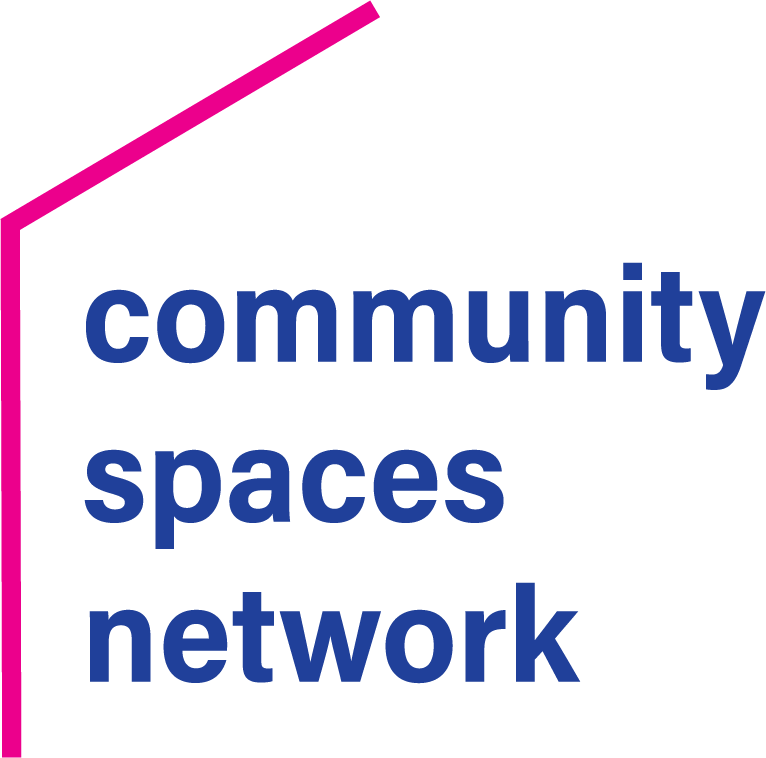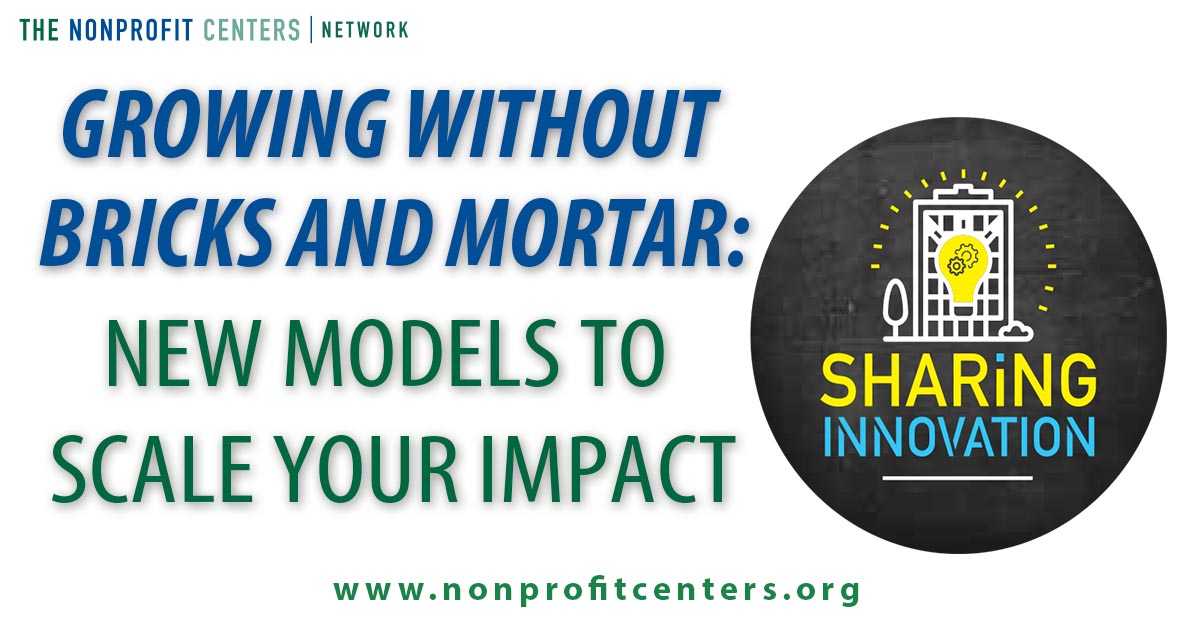We are excited that today’s blog authors were featured as one of 8 presentations at this year’s Sharing Innovation 2018. Like what you read? You can still register for the livestream recording here: www.nonprofitcenters.org/sharing
The number of commercial coworking spaces is rapidly growing across North America. These for-profit shared spaces achieve growth via a traditional and straightforward revenue model: acquire more space, serve more tenants. Yet how can and should nonprofit centers think differently about growth?
At the Sharing Innovation annual NCN gathering in just a few weeks, we are both excited to share how our organizations – Tides in San Francisco and Open Gov Hub in Washington, D.C. – are each scaling their impact in a unique way, without adding more real estate. We will share our top takeaways (like how to lead with your values and leverage intangible assets), and how you can help your own center grow creatively.
First, let’s start with the big elephant in the room: the meteoric rise of for-profit collaborative workspaces – an industry that is projected to grow 16% in the next five years. In Washington, D.C. this year alone, eight new commercial coworking companies have opened even though the field was already crowded with over 70 existing corporate shared spaces. WeWork, the leader in the sector, is now valued at $20 billion and promises members the opportunity to “become part of a greater ‘we’”. And WeWork isn’t alone in selling community as a key service/benefit (accessible to members as soon as they hit the “purchase” button on their membership payment). Most commercial coworking spaces seem to emphasize this as a key part of their branding.
So, as operators of nonprofit centers, should we be worried about the extraordinary growth of the commercial equivalents of our shared spaces?
We believe the key to nonprofit centers’ sustainability and growth in a seemingly crowded market is actually to double-down on our core values. When we are interested in serving more nonprofits, we can scale our impact by seeking values-aligned partnerships that allow us to further our vision of shared services for increased nonprofit effectiveness, including real estate with a social purpose, without necessarily laying another brick.
How are our organizations trying to do this?
Tides is a philanthropic partner and nonprofit accelerator dedicated to building a world of shared prosperity and social justice. Tides manages a robust community of non-profits and social enterprises in two collaborative workspaces: Tides Converge San Francisco first opened in 1996 and now houses 450 people across 75, mission-aligned organizations, while Tides’ second workspace in New York City is home to ten organizations. In late 2015, Google.org approached Tides to help them develop a bustling community space in the first floor of a newly purchased building in downtown San Francisco. The initial partnership resulted in a high-impact membership model and equitable community framework for the three event spaces and coworking area that would eventually be open to all Bay Area non-profit organizations. In March 2018, Tides assumed all daily operations, including managing non-profit membership and coordinating events and coworking sessions. Now, the space is open thirteen hours a day every day of the week, accommodating hundreds of events and coworking sessions each month and providing high-quality event and workspace for 700+ Bay Area non-profits.
Meanwhile, at the Open Gov Hub in Washington, DC, we serve as a dynamic meeting place that brings together 40+ organizations, resources, and ideas to help promote more open governments and transparent, accountable, and civically-engaged societies around the world. Although our members have always worked in 75+ countries worldwide, we as the Hub supported the establishment of our first international affiliate hub in Nepal in 2014, then added a second affiliate hub in Liberia in 2016 and the latest in Mali in 2018. We recently secured additional resources for this work, and are now poised to build upon these initial successes and foster a truly global network of affiliate, like-minded Hubs. Through in-person “staff swaps” plus virtual exchanges between hubs across countries, we will work with our partners to help them establish, maintain, or grow shared spaces, which in turn act as engines fueling nonprofits/civil society organizations who working to address needs in their communities. And we will learn from them to improve our own work in the process.
In the end, the number of commercial coworking spaces may be on the rise, but how a nonprofit center grows its impact should reflect not only its niche work/area of expertise, but most importantly its underlying values. Tides is supporting tech companies to develop and manage spaces that are truly serving their local communities, and the Open Gov Hub is fostering true peer learning and collaborations across countries.
How can you leverage your center’s strengths and values to envision a new chapter of creative growth?

